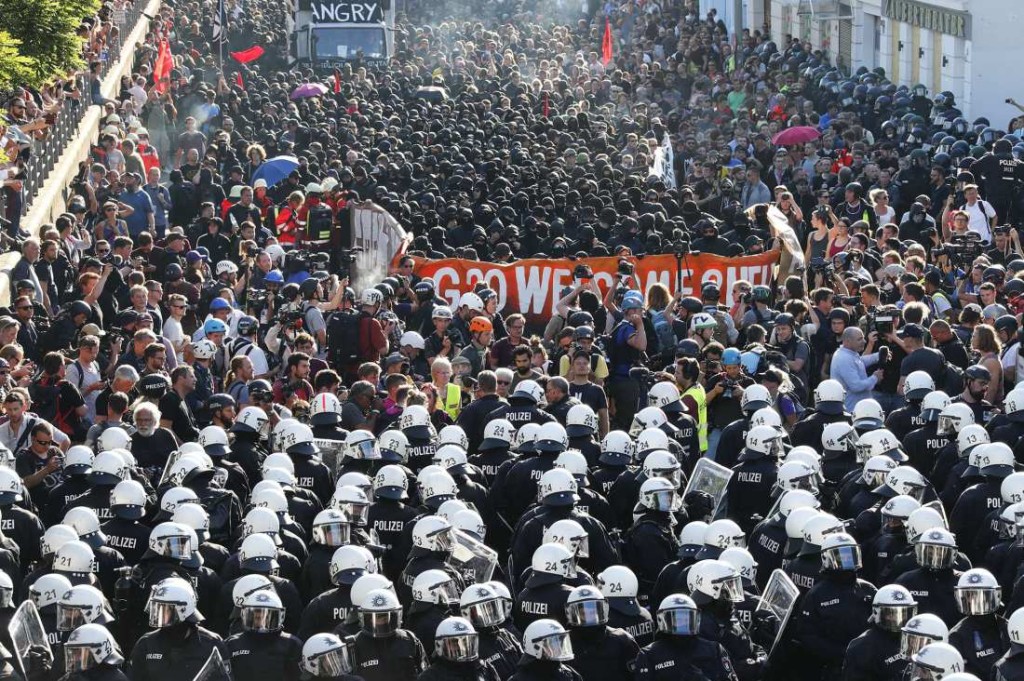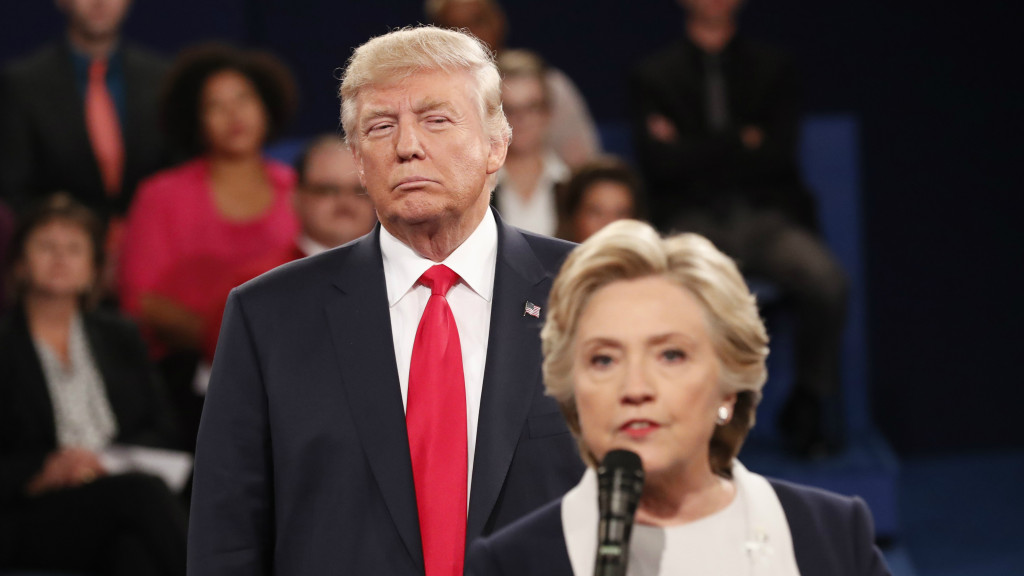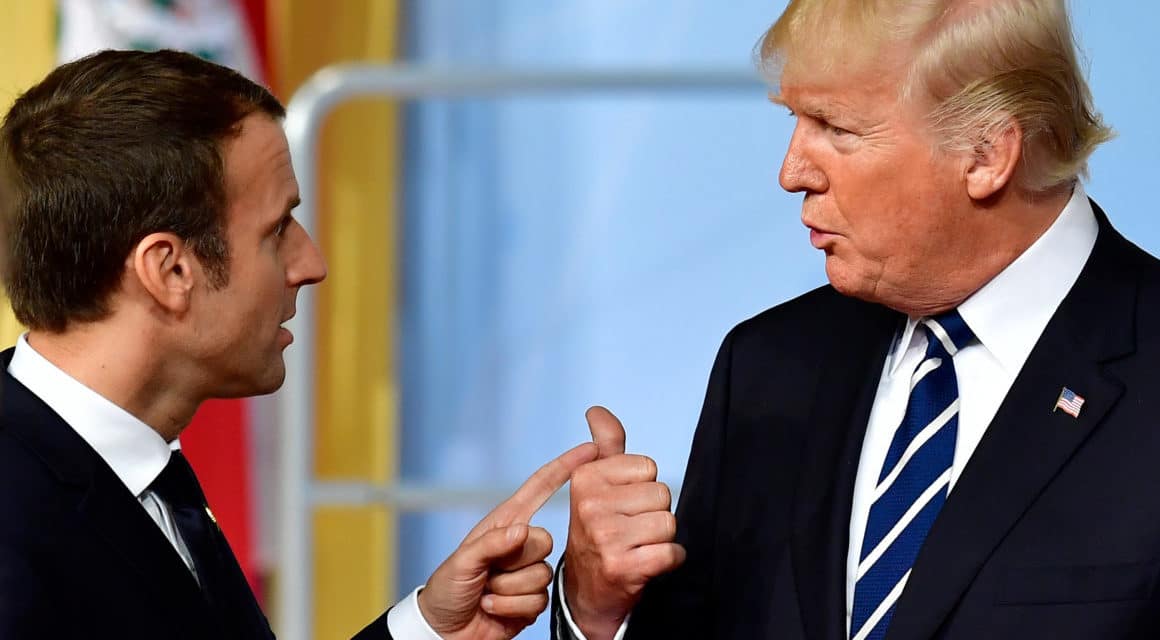“Trump is no outlier, just the less subtle face of Western power in a time of crisis”
Our colleague Inderjeet Parmar of City University London writes for India’s The Wire:
When it comes to assessing US President Donald Trump, it seems there are only two possible positions – he’s either the saviour of the US or the greatest threat yet to the liberal world order. He’s either good or evil, right or wrong.
But it is possible to be critical of Trump and of the visceral reactions of liberal-internationalist critics – American and European – at the same time. And even more, to suggest that Trump is actually a kind of blowback of liberal internationalism, the unofficial ideology of the American foreign policy establishment. He is a by-product of the fault lines of the very system that nourishes his liberal critics, of the system they defend but has yet has brought the US, and the world, to this low point.
Actually, he is the naked face of the hard power, xenophobia, and imperialism at the core of American liberal world order that was sublimated – forced underground – after 1945, hiding in official discourses about the “rule of law”, freedom, human rights, and “security”. He is what imperial liberal internationalism looks like without the sophistry and relentless PR.
What Liberal Internationalism is Hiding
Analysis of the G20 meetings in Hamburg, in particular, suggests that the mainstream media and its commentariat, along with its panoply of think tanks and experts, see only what they want to see and neglect evidence that challenges their conclusions.
What they hardly noticed, for example, which is highly instructive, is the level of mass protests that took place in and around Hamburg, and elsewhere, which were met with water canons, riot police and violence. In their defense of the liberal order against their nemesis, liberals failed to see that the “barbarians” at the gates are inside the West – it’s their “own” people fed up with the economic, social and political results of market-led globalisation.
Martin Luther King, Jr was only half-right when he said that rioting was the language of the unheard; riotous police are the brutal voice of the only-heard and allowed-to-be-heard in the world today. When that’s the elite response to popular protest then expect people like Trump, Marine Le Pen, and Geert Wilders to cash in with their billionaire populism. The may pretend to be the people’s champion, but hiding in plain sight is their politics and economics for the few against the many.
They hide in plain sight, however, as the liberal order that produced them stands up in self-defence at the maverick style and unsubtle, overt xenophobia, rudeness and misogyny, yet forget that the same leader is carrying out a programme to further diminish popular rights and opportunities, and waging military violence – applauded by his liberal critics as truly presidential – without mercy with civilian casualties spiralling out of control in faraway lands, from which flow streams of refugees, treated with horror and disdain when they wash up on “our” shores, demanding we pay the bill for wars waged on them.
But none of that appears to matter to official defenders of globalization, the free market and the drivers of inequality and war. Rather, it is cordoned off as separate from and unrelated to Western interventions. In treating Trump as their nemesis, they stake out the political terrain, the politics of the thinkable, of thinkable thought, beyond which lies irrelevance. So they see only that which Trump does that ‘threatens’ or ‘challenges’ their sense of world order or cosies up to the enemies of the order; they elide all those actions – the majority – he’s taken that actually bolster the current international order.
Liberal internationalists, claiming technocratic expertise, fail to see that it is the series of crises and global power shifts brought about largely by grand strategies they developed and pursued since 1945, and especially since the 1970s, at home and abroad, that have resulted in not just the Trump phenomenon but in the right-wing xenophobic populism across Europe and elsewhere.

German riot police face protestors at the G20 summit in Hamburg, July 6, 2017 (Fabrizio Bensch/Reuters)
Is Trump Really That Different?
When it comes to defending the West against the barbarian hordes hammering at the gates of civilisation, recall European Council President Donald Tusk’s tweet when Trump visited Europe in May – “Tomorrow I’ll aim to convince @POTUS that euro-atlanticism means the free world co-operating to prevent post-West world order”. That was before Trump’s vigorous call for the West to stand up in an existential battle for survival against its enemies at home and abroad. And Trump’s speech in Poland was followed by a speech at the G20 Summit, largely ignored at the time, by French President Emmanuel Macron, who declared that the problems of Africa (portrayed as a homogeneous mess) were largely of their own making, “civilisational”, and due to African women bearing too many children, Malthusianism in the 21st century.
Macron represents the radical centre; Tusk is the responsible internationalist. Trump is no outlier, just the less subtle face of Western power in a time of crisis where the politics of divide and rule is the preferred governing principle.
Liberal internationalists’ much-loved fetish – relentless capitalist globalization, the march of the market into virtually every nook and cranny of life, of unleashed financialisation, free trade (TPP, TPIP, NAFTA), abolition of financial and capital controls, privatisation, deregulation – of a system that merely “makes money” – has resulted in massive inequality, lowered life chances for the majority and generated a politics favouring the super-rich 1% at the expense of ordinary voters.
And the military-industrial complex – nowadays suitably privatised – has waged war after war since Korea and spread its military bases across the world, beneath the waves and militarised space and cyberspace, interfered in others’ elections, overthrown governments they didn’t like and installed autocrats to enable ‘stability’ for the empire.
And it has also generated mass nationalist resistance, some of which resulted in terrorism from the likes of ISIS and Al Qa’eda, murderous mutations to be sure but forces once seen as enemies of the West’s enemies (Syria, Iran, Iraq, Soviet Union, nationalism). The list goes on of course but the point is made – this is the liberal world order for the majority of mankind and its crises are now starkly visible inside the West, especially the US. Inequality, terror attacks, political turmoil, rise of right-wing populism.
The chickens have come home to roost.
In assessing Trump, any statement that denies Trump is vandalising the international order is seen as pro-Trumpism. Sophisticated liberals who mocked George W. Bush’s language of you’re either with us or against now revive the mantra but without a hint of irony. They are in war mode and if you don’t line up on the team and uphold the party line, you’re part of the problem. But ‘liberals’ – or global-market-protected-by-institutions fundamentalists – look with smug satisfaction at any critics and expose their inability to see beyond their ideology.
Liberal critics conveniently forget that that order which links domestic politics and economy to the international system of markets, security and other institutions is in crisis, was already in crisis and will remain in crisis unless radical steps are taken to reorder the US and the world in line with popular aspirations for decent living standards, a democratic order at home and abroad that expresses a desire for cooperation, and peace. Trump is ensuring that domestic minorities are put in their place and the demands of global emerging powers are stymied. In this, he differs little in substance from Tusk, Macron and the rest.

Donald Trump watches Hillary Clinton in the 2nd US Presidential Debate, October 2016
Setting the Stage for Trump
Trump and his team, of course, lap up this heated political theatre. He is after all, a media-savvy billionaire who’s done his market research, although much of what he does is instinctive. And he knows how to play to the gallery far more than any of his political-career critics – who largely represent the status quo and want to return to the good old days when they could just get on with politics without interference from ordinary people or anyone who speaks for them. And quite frankly, Trump does speak (misleadingly, demagogically) for a lot of people, including some on the Left who backed his attacks on the international system – NATO, for example – and on Wall Street, the political establishment, the Iraq war and US military interventions in the Middle East, opposition to Saudi Arabia, and support for Bashar al-Assad and Russia in their fight against ISIS.
Imperialistic though the Trump administration is, true to the pluto-populism – speaking for the people but actually attacking them – candidate Trump had his finger on, or rather serendipitously uncovered and exposed, the pulse of the US – as did the “socialist” Bernie Sanders. People have had their fill of American global hegemony, of an American dream slipping out of reach, of a federal government and national politics for the rich few.
This sent the liberal establishment, since 9/11 fused with its neoconservatives, into a tailspin last summer. Recall the open letters from “respectable” conservative-liberal/neocon supporters of the Iraq war and torture during the ‘war on terror’: to them, Trump was a warmonger; racist and unfit for office.
Yet, what has Trump done to “destroy” the liberal order since taking office? He is not the same as liberals, of course, but has he fundamentally challenged the order or merely recognised what is obvious – that the world order is in crisis at home and abroad – and is intervening in ways to reverse global change, reassert raw American power and redraw the boundaries of American and Western identity? Trump’s policies – whatever his stylistic and linguistic practices, and lack of knowledge – are at complete odds with his campaign rhetoric when it comes to the core system of power embedded in the international order, while he tinkers at its margins.
He has ridden to the “rescue” of Wall Street and reasserted American support for Article 5 of the NATO charter – to come to the military aid of any member state attacked by its foe (Russia). Trump has promised to sell American natural gas and arms to the eastern European states of the Three Seas Initiative to wean them from Russian energy dependence. He has sold arms to Taiwan and to Saudi Arabia, maintained Barack Obama-era aid to Israel, installed a missile system in South Korea that could reach deep into Chinese territory, sent three US aircraft carriers into East Asia and has no policy other than confrontation with North Korea.
That’s the big picture.
Imperial liberals lament the lack of democracy promotion by the Trump administration yet conveniently forget that democracy promotion was the American strategy to replace cold war ‘containment’ – and led to regime change in Iraq and the ensuing carnage in that once-stable land. How did David Cameron-Nicolas Sarkozy-Obama introduce democracy to Libya after destroying the Muammar Gaddafi regime and how did backing ISIS in Syria contribute to peace or democracy there? What did the US do under liberal Obama during the Arab spring – in Egypt, Bahrain or Saudi Arabia?
The central problem is that imperial liberals want a return to business as usual when the world has moved on and people demand change. The world crisis today is of the liberal international order’s making. Trump is the result not the cause. But his assertion of raw economic and military power will have independent effects on the international order, hence liberals’ anxieties.
Unless liberals advance an agenda for radical change or step aside and allow the Left to produce a new grand bargain, the world threatens to spiral into further chaos, witness sharper tensions, and drift towards outright war.

